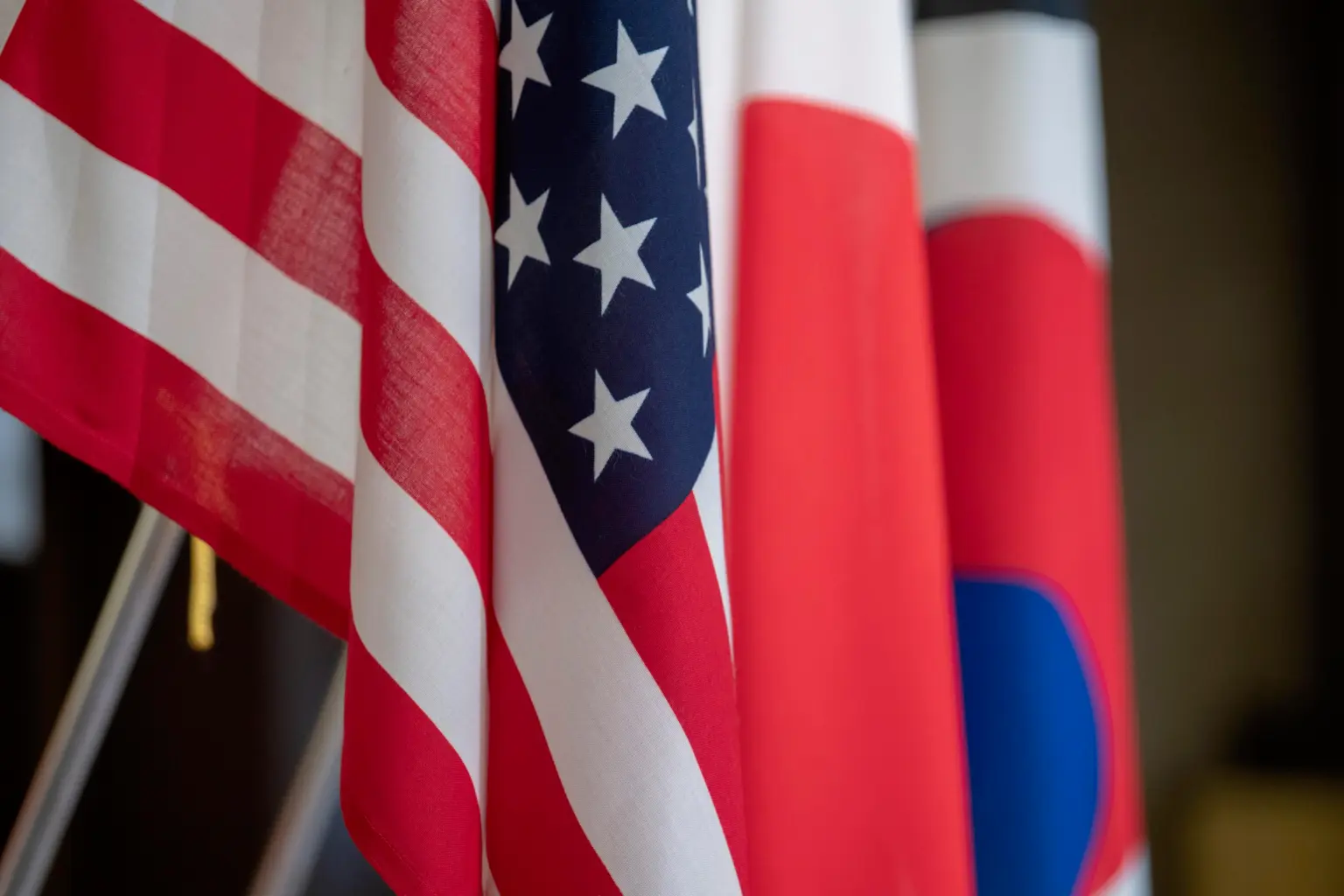![]() Newsflash:
Newsflash:
U.S. tech stocks slide on AI bubble fears10:45 AM
Government Shutdown Halts SNAP Benefits 8:00 AM
UPS Cargo Plane Crash in Kentucky Kills 7 2:45 AM
Democrats Gain in 2025 State Elections 10:00 PM
USPTO Stays Open Amid Federal Shutdown 9:30 AM
US–China Reach Rare-Earth Trade Accord 11:15 AM
Clocks “Fall Back” as Daylight Saving Time Ends 2:00 AM
Federal Government Shutdown Surpasses Historic Milestone12:01 AM
Insurtech Firm to Release Q3 Results 5:00 PM
“Make-or-Break Day” for Millions’ Finances 12:00 AM
SpaceX Prepares for next-icon Starship Launch 10:14 am

Breaking News
![]() Oct 29
Oct 29
by Casey Quinn
U.S. Launches “Technology Prosperity Deals” with Japan & South Korea
On October 29, 2025, the U.S. inked new "Technology Prosperity Deals" (TPDs) with Japan and South Korea.These agreements were part of a larger initiative to strengthen the U.S.'s strategic and technology relations in the Indo-Pacific.These agreements are meant to make sure that technology standards, export rules, and innovation ecosystems all operate together in critical areas including AI, quantum computing, biotechnology, space, and 6G networking.
U.S. Strengthens Tech Alliances with Japan and South Korea to Secure Global Leadership
Strategic Scope of the Technology Prosperity Deals
The U.S-Japan and U.S-Korea TPDs lay out a broad agenda for collaboration: accelerating artificial intelligence innovation, coordinating AI hardware and software exports, advancing quantum computing research, supporting biotechnology and pharmaceutical resilience, and pushing next-generation communications like 6G. For Japan, the deal also underscores joint work in commercial space-missions and fusion-energy research via Japan’s JT-60SA tokamak, and for Korea, it emphasizes reducing burdens on digital hosting architectures and strengthening AI standards
Why These Deals Matter for U.S. Tech Leadership
The U.S. is changing its strategy from only investing in tech in the U.S. to building trusted-partner ecosystems that share ideas, make things, and set standards. The U.S. works with Japan and Korea, two major tech countries, to make it easier to set rules for important technology and rely less on supply networks that are hostile. The agreements also show that new areas of innovation like AI, quantum, and fusion are no longer just seen as ways to make money; they are also seen as important for national security and economic stability.
Key Implementation and Policy Implications
The TPDs have big goals, but they aren't full treaties. They are not binding agreements; instead, they are non-binding memoranda, which means that there are no set amounts of money, deadlines, or ways to enforce the law. The three countries will need to work together on their regulatory frameworks, export-control systems, joint research and development projects, and investments in the supply chain for it to work. The U.S.-Korea deal, for example, talks a lot about programs to promote STEM education and make it easier to follow data-hosting rules. These changes affect the government, businesses, and schools.
Analysts say that for these agreements to become real policy, public agencies and private-sector partners would need to work together, especially when it comes to AI and quantum innovation. It will be important to make sure that cybersecurity standards are the same and that data can be shared safely to protect sensitive research and intellectual property. The U.S., Japan, and South Korea also need to make their export rules more similar so that their technology doesn't end up in the hands of enemies in other countries. If done right, these partnerships could set a global standard for safe and ethical digital collaboration
"U.S. Signs Landmark Tech Deals with Japan and South Korea to Strengthen AI, Quantum, and 6G Collaboration"
Breaking News
Tokyo and Washington The U.S. has made new "Technology Prosperity Deals" with Japan and South Korea to work together better on things like quantum computing, AI, and advanced communications. The agreements are meant to protect the supply chains for chips, promote new ideas, and set common technical standards across the Indo-Pacific. The U.S. government said the plan will improve joint research and development, cybersecurity, and democratic leadership in new technologies. Experts say this is an important step in stopping China's growing tech power and moving forward with America's global innovation agenda.
Outlook..
The Technology Prosperity Deals could change the way the world sees tech leadership if they are done well. They could bring the U.S., Japan, and South Korea together into a three-nation innovation bloc that could compete in AI, quantum, space, and more. This could lead to new partnerships between the public and private sectors, shared supply chains, and ecosystems of standards that set the pace for the rest of the world. If the U.S. doesn't keep its promises, though, it could be at a strategic disadvantage, with competitors making progress through their own partnerships and investment frameworks. We'll have to wait a few years to see if these deals lead to tech domination or just stay as empty promises for businesses, governments, and investors.

Casey Quinn
Casey Quinn is a U.S. technology reporter covering innovation, digital policy, and emerging trends in the tech industry.